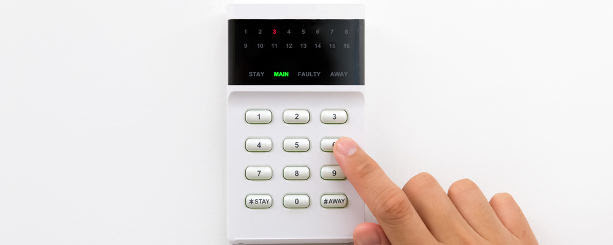You are reading ChinaImportal's Newsletter!
alveolegame@gmail.com
+60126694217

In this Product Guide, we explain what importers must know about buying Alarm Systems from Chinese manufacturers. Keep reading, and learn more about Alarm systems production clusters in Mainland China, and applicable regulations and standards in the European Union and the United States.
Alarm Systems Manufacturing Clusters in Mainland China
Shenzhen, being the world’s primary center for electronics manufacturing, is home to a large number, if not the majority, of China’s Home Alarm System Suppliers. The well established ecosystem of component (i.e. 3G and GSM transmitters) and subsystem (i.e., Camera Modules) has enabled the industry to quickly take root in Shenzhen city, and its surrounding. Follow the links below, to learn more about electronics manufacturing in China:- Importing Electronics from China – A Complete Guide
- The Importers Guide to Shenzhen – The Capital of Electronics
1. Electronics trading companies can rarely, if ever, provide the required compliance documentation required by law in developed markets, including the United States and the European Union. As you will soon learn, further down in this article, this cannot even be taken for granted when buying from industry leading Alarm Systems Manufacturers in China.
2. In our experience, most Trading companies possess little relevant expertise, apart from that of pricing structures in the relevant industries. However, Alarm systems manufacturing is complex and requirescomprehensive quality assurance procedures. If you buy from a mere middleman, you have no insight into the supplier’s ability to minimize quality issues and defects.
3. Many trading companies deal with goods made for the domestic Chinese market. While “Made for China” may not exclusively be of poor quality, that is sometimes the case. Furthermore, products made for the domestic market are, for clear reasons, not manufactured in compliance with foreign regulations and safety standards. When importing Alarm systems from China, this includes the R&TTE directives (European Union) and FCC Part 15: Intentional Radiators (United States), among others.
How to Distinguish Between a Manufacturer and Trader
To the untrained eye, it may seem virtually impossible to distinguish between an Alarm systems manufacturer, and a trader. However, the following signals can reveal the difference – without you actually being forced to visit their factory:a. Product Certificates, Technical Files & Test Reports: Compliance documents are almost exclusively held by manufacturers. Very few trading companies in the industry can provide such documentation.
b. Product Scope: A manufacturer is always limited by its own technical expertise and assembly lines. Hence, an Alarm system manufacturer is specialized in certain product categories, for example GSM Home Alarm Systems or Fire Alarm Systems. Trading companies, on the other hand, have no such limitations.
c. Registered Capital: While there are ways to ‘artificially increase’ the registered capital, it’s still an important signal that can be used to determine the suppliers scale of operations. A supplier with a registered capital of RMB 10,000,000, is far more likely to be a manufacturer, while an entity with RMB 200,000 is most likely not.
Ensuring Compliance with Applicable Regulations and Safety Standards When Importing Alarm Systems
There are two factors to consider when importing Alarm systems from China, as explained below:a. An alarm system is a composition of various subsystems, for example, IP Cameras, Control Panels, RFID Keypads, Power Supplies and Wireless Transmitters. From a compliance perspective, each subsystem is subject to product regulations and technical standards. In fact, the very regulations and standards that do apply differ between the various subsystems. Below follows an example:
- Control Panel: R&TTE, RoHS
- IP Camera: R&TTE, RoHS
- RFID Keypad: RoHS
- AC Adapter: EMC Directive, Low Voltage Directive, RoHS
b. Most alarm systems communicate wirelessly. Hence, most Alarm systems are subject to regulations in most developed markets, including the European Union and the United States. Below follows an overview of applicable regulations in the United States and the European Union.
European Union
- R&TTE Directive (Read More)
- RoHS (Read More)
- EMC Directive*
- Low Voltage Directive (LVD)*
United States
Now, what makes compliance more complicated when buying Alarm systems? First, it’s compliance is never simple. However, before we go further into details, you must be aware of the following:
1. Only a minority of the Alarm systems manufactures in China are able to ensure compliance with EU and US product standards.
2. Even among those who has such technical expertise, they almost never have a complete set of compliance documentation. Many importers, and suppliers, assume that a certificate or test report is all that’s needed. However, the authorities require a far more comprehensive set of documents, including circuit diagrams, component list and manual copies.
1. Use components from established brand names (i.e., power supplies from TDK) whenever possible. Established manufacturers tend to manufacture products in compliance with the regulations in major markets, which is not the case for smaller, local, players.
2. Use subsystems (i.e., Control panels) for which the supplier can already provide the required documentation. This reduces the number of subsystems that must be submitted for compliance testing and certification by a third party, thereby cutting costs.
Looking for Manufacturers In China?
We help Startups & SME's access information on manufacturers, product certification and much more. We have solutions in the following industries:
Textiles & Apparel, Watches, Accessories & Jewellery,
Electronics, Home, Construction & Furniture,
Machinery, Parts & Tooling
Electronics, Home, Construction & Furniture,
Machinery, Parts & Tooling



No comments:
Post a Comment